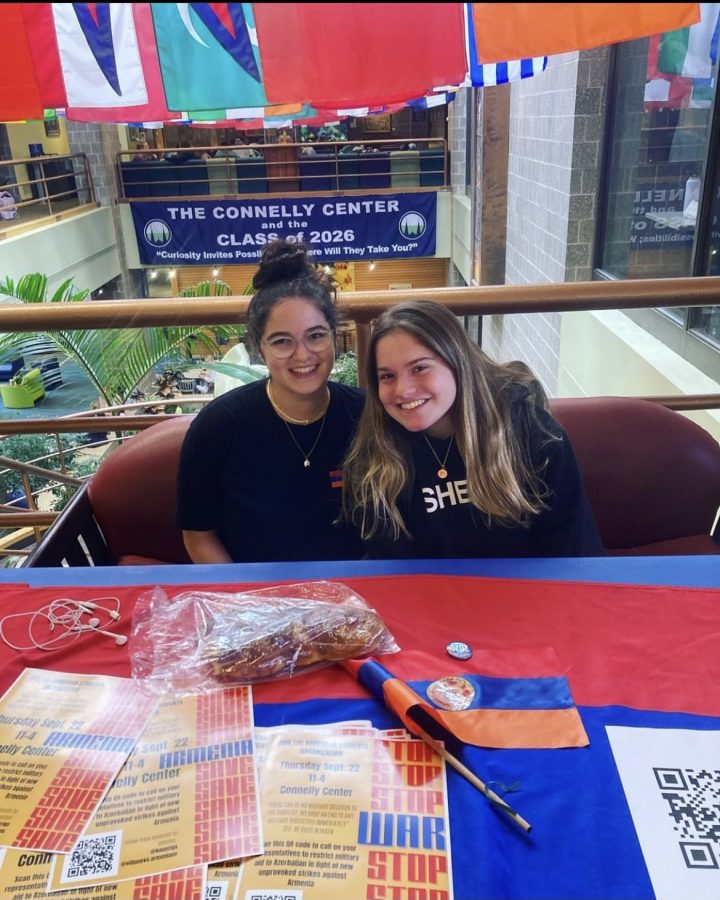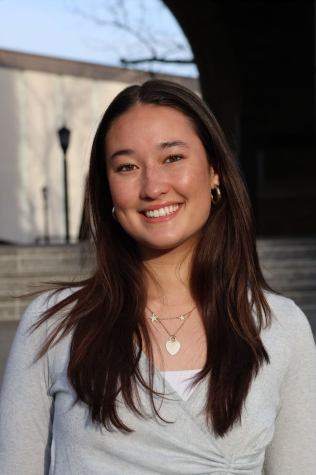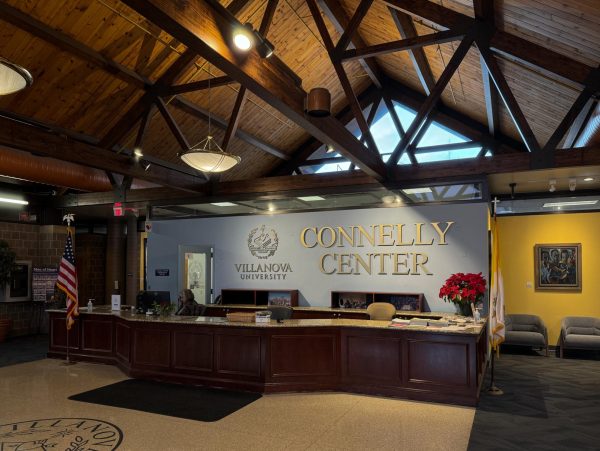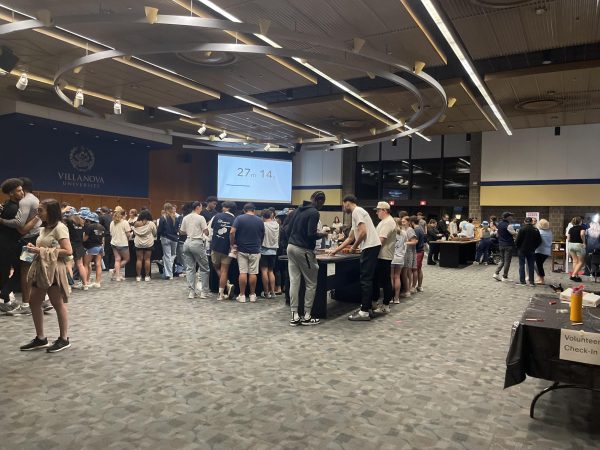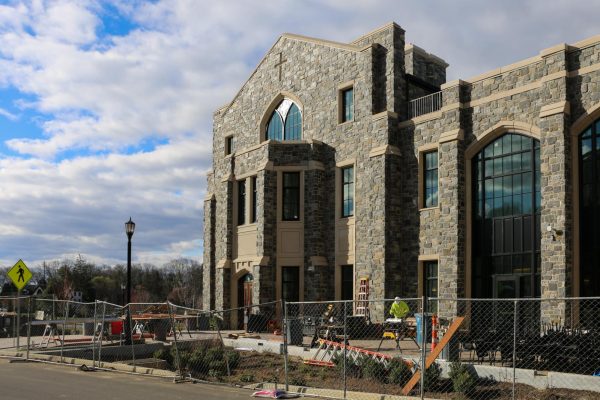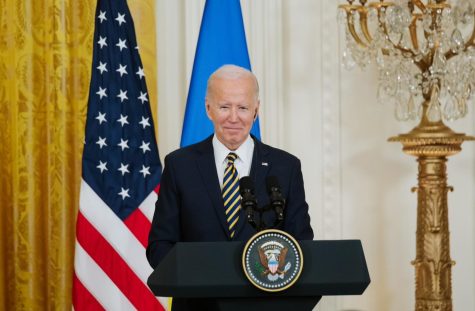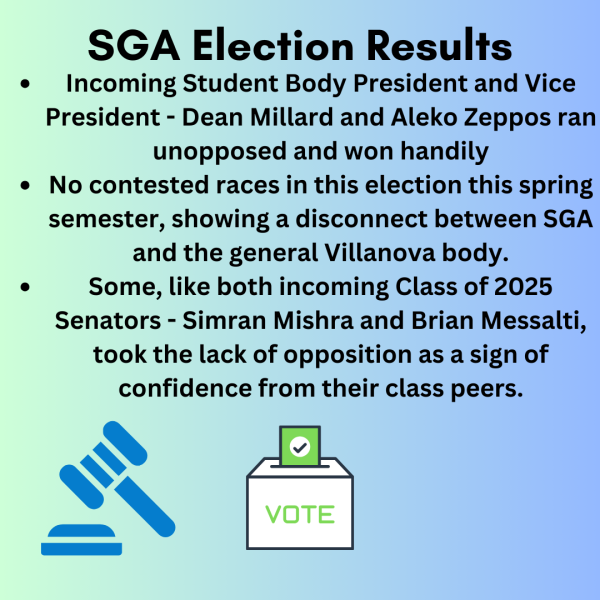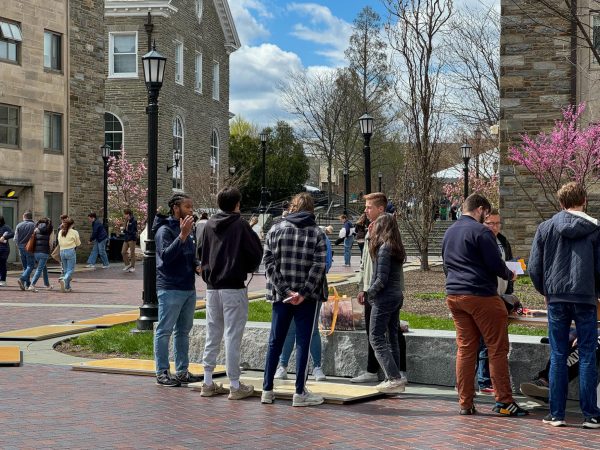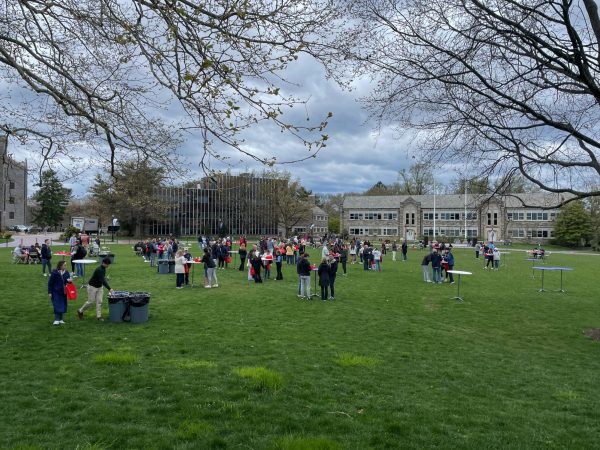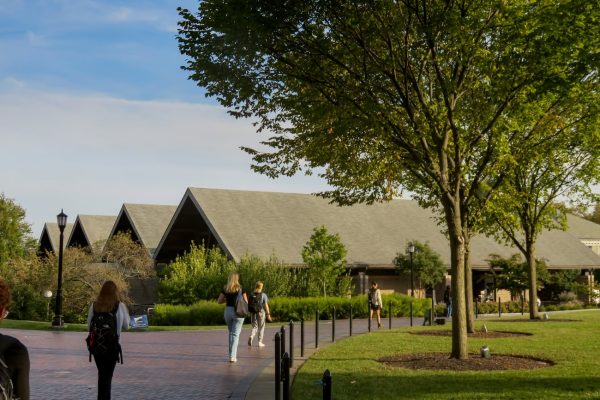Armenian Students Organization Promotes Peace
September 28, 2022
This past Thursday, the Armenian Students Organization (ASO) called on Villanovans to take action in response to the Armenia-Azerbaijan conflict that flared up on Sept. 12, when Azerbaijan attacked Armenian air defense and artillery. Armenian spokespeople report that 135 of their service members were killed and six civilians were wounded. Azerbaijan claims its actions were “retaliatory measures” and that 77 of its service members were killed. The United Nations brokered a cease-fire that started at 8 p.m. local time last Wednesday night. However, the situation remains extremely tense, especially at the border.
“The intention of our event was to inform the greater community about what’s happening in Armenia and to provide them with ways to contribute to peace efforts,” said ASO Secretary, sophomore Isabella Bailain. “As a part of the Armenian Students Organization, we believe it’s imperative that Villanova students take interest in international crises and human rights violations, and that when possible, we can educate ourselves on ways to uphold our Augustinian values of truth, unity and love, and the way that those values have an important place in our activism.”
The table at Connelly Center’s main feature was a flier that contained a QR code to a petition form on the March to Justice website. It allowed students to call on their representatives to “restrict military aid to Azerbaijan in light of new unprovoked strikes against Armenia.”
Connecting to the national level, the organization hopes to get House Resolution 1351, titled: “Condemning Azerbaijan’s unprovoked military attack on Armenia” passed. The bill was introduced by the House Foreign Affairs Committee on Sept. 14, and it is sponsored by California representative Adam Schiff.
“Our event’s purpose was not only to invigorate support for Armenia, a religious minority in the Middle East, who is being attacked by a close ally of a nation—who to this day— denies committing genocide against our people, but to also educate them and provide resources for their continued interest in the often ignored region of the world,” explained ASO Vice President, junior Taleen Postian.
Postian added that “of the 70 fliers [they] handed out on Thursday, each included resources for students to learn more about Armenian issues and starting points for them to conduct their own research on the conflict. Our message is a call to empathy and a call to action. We do not want your pity without effort, we do not want prayers without concrete change.”
Members of ASO also mentioned how most people at the University do not even know that an Armenian Students Organization exists on campus, and they might not even know that Armenia exists, let alone what’s happening in Artsakh and the prolonged humanitarian crisis that has taken place. To combat this unawareness, ASO hosts countless activities and events around the year ranging from member dinners with Armenian mezzeh, khorovats, Armenian barbecue, lemejoon, Armenian pizza sales, genocide recognition events and various petitions.
“We also believe it’s important to pay attention to America’s contribution to international crises, as we do play a larger role than what is visible to citizens on the surface,” Bailan said.
Her point could not be further proven by this situation. Recently, Speaker Nancy Pelosi sparked intense controversy when she visited Armenia to demonstrate support for the country and to say that the violence “was initiated by the Azeris.” While some argue that Speaker Pelosi traveled to Armenia solely to model the diplomatic strength of the United States House, the issue is even more complex since Armenians have historically been backed by Russia, and Azerbaijan has received support from Turkey—a country in NATO.
To many Villanovans, this conflict, along with many other complicated ones in the East, seem non-existent because of physical distance and lack of connection to the region. However, to many of our peers here, Armenia is home.
“It is very difficult spending hours talking at your fellow students to no avail,” Postian said. “Saying, ‘would you like to take action to prevent genocide?’ And hearing a mumbled ‘no’ in response is not only depressing, it’s aggravating. We are meant to be immersed in the teachings of Augustinian tradition and values at Villanova. We as Armenians are yelling the truth, and apathetic responses are not demonstrative of the traits we have had ingrained in us since freshman year. We as Armenians ask you to do better. All we want is that you start by listening and opening up your mind to learning.”

